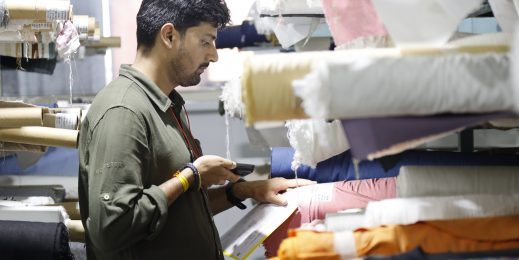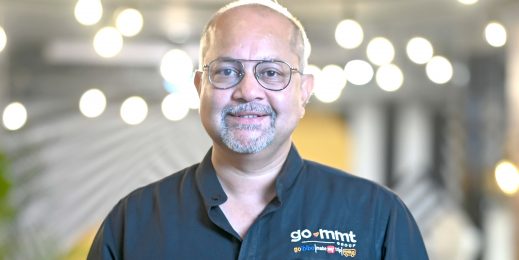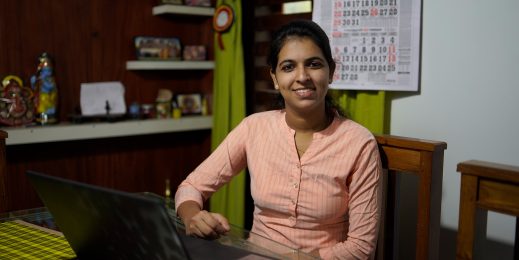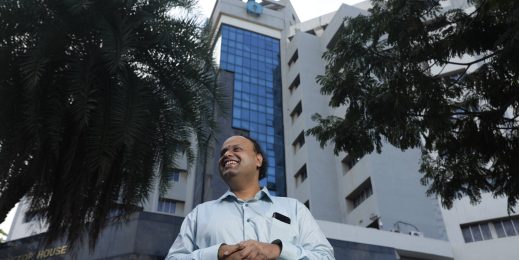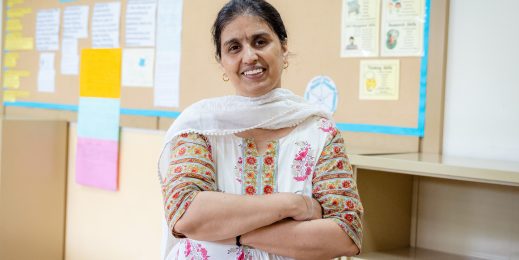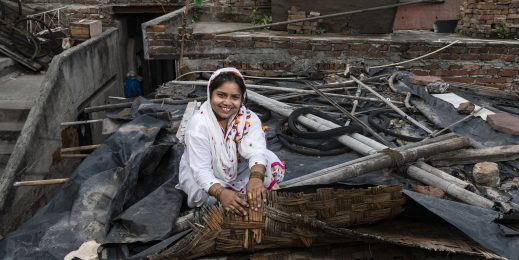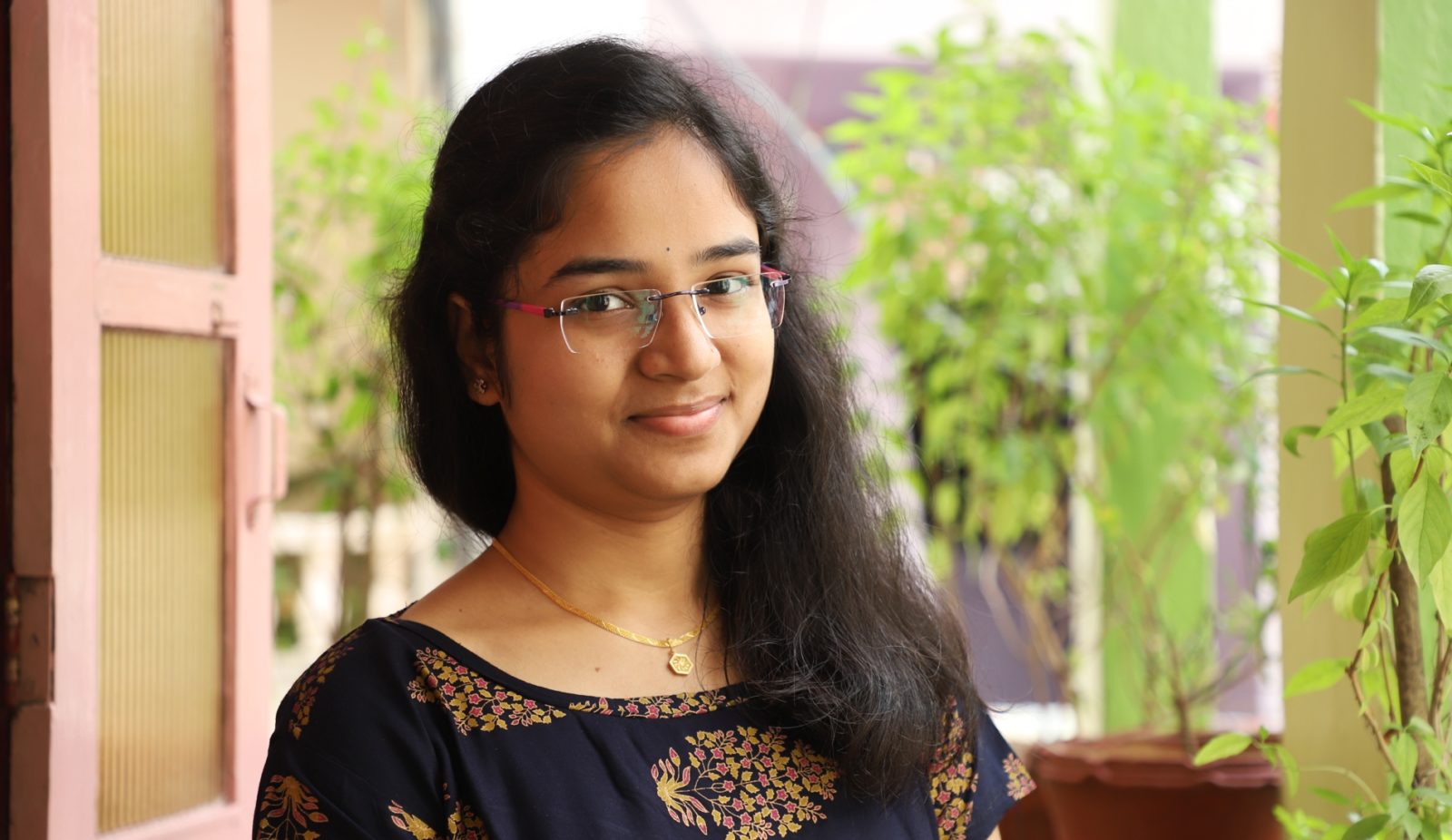
An extraordinary training program is helping women from disadvantaged backgrounds land careers in cybersecurity
Shraddha Wadighare had made up her mind and nothing was going to stop her, not even her parents’ initial misgivings.
Late last year, the out-of-work 25-year-old electronics engineering graduate packed her bags and left her tiny family home in Timki, an out-of-the way neighborhood in Nagpur near the geographic center of India. She traveled more than 1,000 kilometers north to the bustling city of Noida, near the capital New Delhi, and enrolled in an all-expenses-paid course in cybersecurity.
It was the biggest move of her life.
Four months later, she had an impressive new qualification on her resume and it wasn’t long before she landed a well-paying role at a multinational IT risk management company in Mumbai, the country’s biggest metropolis. She has just sent her first paycheck to her mother, a homemaker, and father, a railroad engineer, as a token of gratitude for allowing her to follow her dreams.
Wadighare is a graduate of CyberShikshaa–a philanthropic program that funds and trains women engineering graduates from underserved small towns across India so they can build careers in the rapidly expanding cybersecurity sector.
The program is the brainchild of two women leaders in technology—Manju Dhasmana, director of CSR at Microsoft India, and Rama Vedashree, CEO of the Data Security Council of India (DSCI), a not-for-profit industry body focused on data protection.
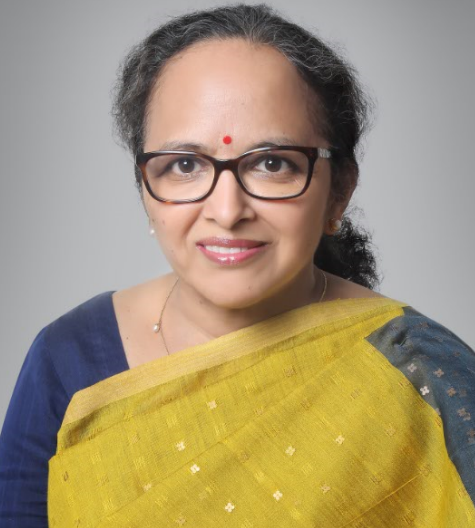
While India produces roughly 1.5 million engineer graduates each year, less than 30% of them are women and too many find it hard to get jobs. Many of them are the products of little-known colleges where they gain limited technical skills and graduate with certificates that few potential employers recognize.
At the same time, India’s cybersecurity industry is growing fast. By 2025 it is forecast to be worth USD 35 billion as governments, companies, and startups seek to safeguard data. The demand for skilled cybersecurity workers has soared accordingly, but women still only make up around 11% of the sector’s workforce, both in India and globally.
Dhasmana and Vedashree decided two years ago to help bridge that gender gap by setting up CyberShikshaa, which in Hindi means ‘cyber education.’
“As a tech industry organization, Microsoft felt it was our responsibility to create very strong career pathways, especially for young women to join the technology sector,” says Dhasmana.
DSCI’s Vedashree says there was a need to evangelize cybersecurity as a career option for new female grads. “So, we aligned our charters for skills development in cyber fields and women in security and crafted this program together.”
CyberShikshaa is aimed at women between the ages of 21 and 26 who come from communities away from India’s major population centers. Each must have an engineering degree and be from a family with an annual income below Rs 7 lakhs (around USD 10,000).
Through a partnership with the Ministry of Electronics and IT (MeitY), trainees who complete its four-month course are given nationally recognized certification, so they can compete for jobs on an equal footing with graduates from better-off backgrounds.
To mobilize candidates for the program at scale, Microsoft and DSCI also partnered with government-linked training partners, such as Centre for Development of Advanced Computing (C-DAC) and the National Institute of Electronics and Information Technology (NIELIT), who also provide residential facilities for trainees.
More than 500 women have so far graduated from CyberShikshaa and many have taken up public sector positions–often as the first female in their assigned team.

Take Priya Ghurde, for instance. She picked up the basics in ethical hacking and cyber forensics at C-DAC’s training center in Hyderabad. She soon secured a job in the Sardar Vallabhbhai Patel National Police Academy in the same city in March this year. Today, she is the sole woman in a team that tracks down criminals by extracting evidence from phones and laptops.
“People think some hackers will be there and they will be dangerous and whether a woman can work in that environment, these are the prejudices people in general have,” she says. “In digital forensics, I have to have contact with on-field police officers. Being the only woman in this whole group, I had little bit reservations, but so far it is totally okay.”
Ghurde was raised in Murtizapur, a small rural town in the underdeveloped Akola district in the state of Maharashtra. For most of her childhood, there was only a landline phone at home. She learned the basics of computers only after the tenth grade in school. She chose engineering as a course at a small college but came out wanting more options. “I learned more in four months at CyberShikshaa than I did in four years of engineering,” she says.
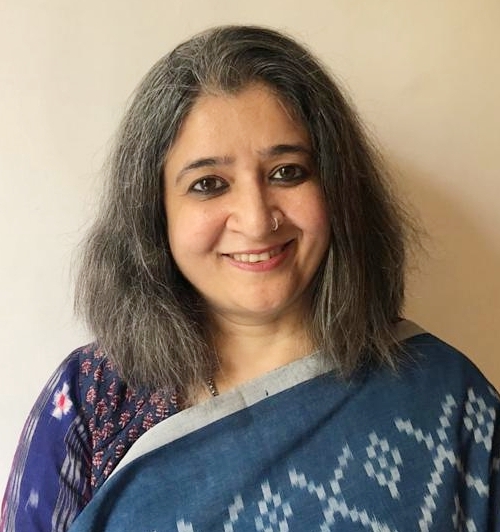
Since its launch two years ago, the program has worked hard to attract applicants and to keep its trainees engaged. In its early phases, it was found that even if 2,000 young women applied, only about 10% would turn up for an entrance test.
Many feared that their knowledge of coding, which was entirely theoretical, would stand exposed in a practical examination. To accommodate this, the assessment was made shorter and more basic.
Similarly, when candidates lacked the confidence to interact with big employers and pass employment aptitude tests, modules for soft skills and spoken English were introduced. More training centers have been added to widen the net of students across the country.
One such addition is being run by NIELIT in the city of Srinagar in the Union Territory of Jammu and Kashmir. Decades of armed cross-border strife has made the region one of the most heavily militarized parts of the world. The CyberShikshaa training center opened in 2019 to cater for local women who are unable to obtain permission to travel to other locations for training.
Connectivity is patchy in this region. Trainers and students have had to learn to work around slow internet speeds and shutdowns that hamper lessons–a situation made worse by ongoing COVID-19 pandemic restrictions.
Nonetheless, participants say their perseverance is paying off. Most graduates come from families with incomes below Rs 5 lakhs (USD 6,500) a year. With limited local job prospects, finding work elsewhere is often the only way to boost the financial status of their families. From the first batch of 30 women, 12 are now working for IT companies in other cities.
Qazi Taheefah Gulzar, who completed the course recently, has been through series of interviews with a large IT company recently and is hoping to get a letter of offer any day now. The young computer engineer imagines a future for herself in cloud or mobile forensics. “Cybersecurity is just a word. Inside it is a world where I can explore and switch,” she says.
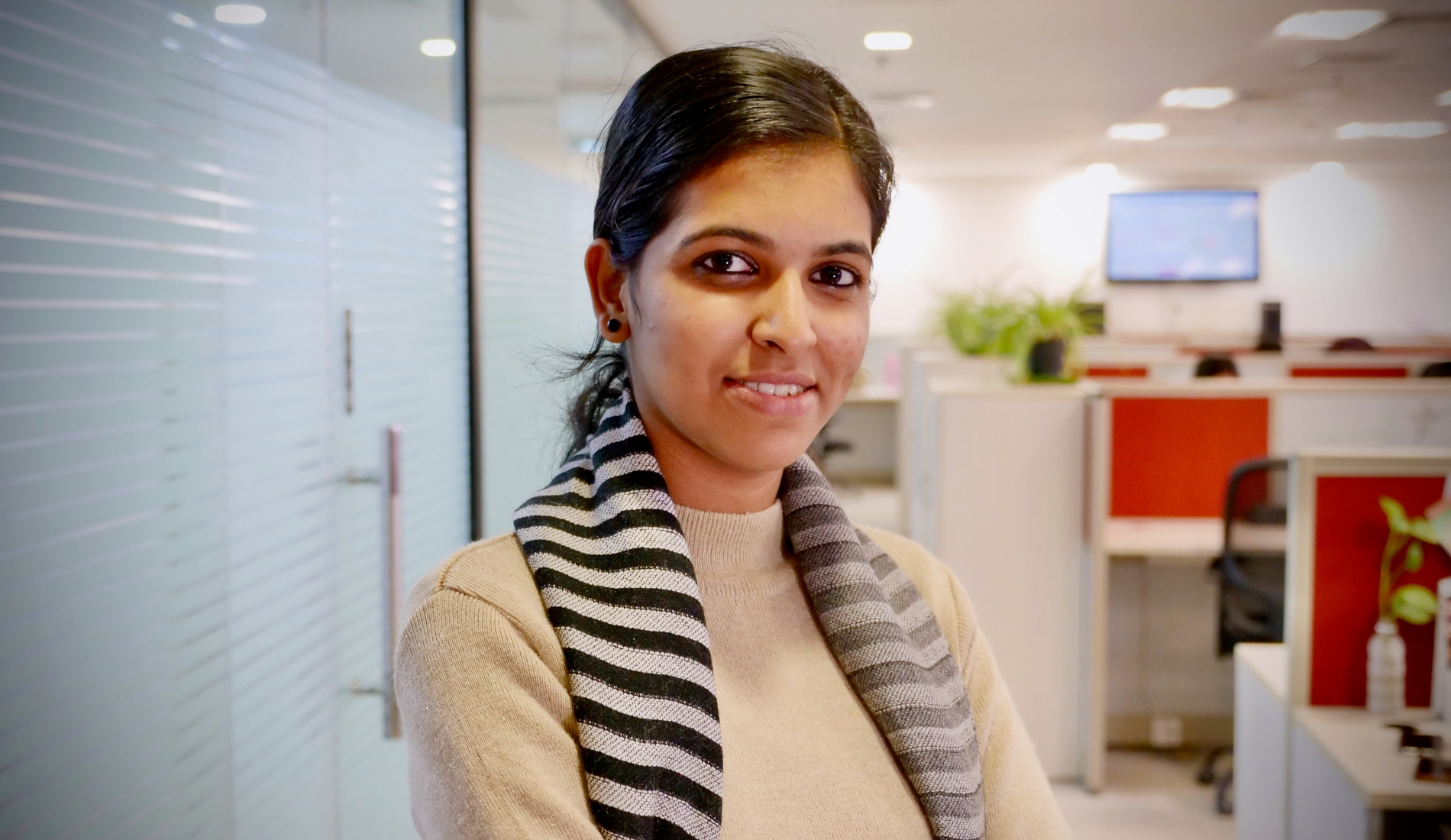
Meanwhile, a growing number of companies are stepping up their recruitment of women and many want to hire from diverse parts of the country.
ACPL Systems has offices in several cities in India, as well as in Singapore, and employs a number of CyberShikshaa graduates. Among them is Manjusha M, the daughter of a temple worker from Kannur in the southern state of Kerala. She now works in the company’s security operations center in Gurugram.
ACPL’s managing director Aarti Bindra, is one of the few women leaders in Indian cybersecurity. Women make up 25% of her company’s employees and she hopes to boost that to 50% within a few years. She says her recruiters have been able to find trainees for the company’s pre-sales, ticketing support, and security implementation departments via the program.
Encouraged by that sort of progress, CyberShikshaa’s founders plan to ramp up operations. They have branched into privacy training. They are also helping women who have taken breaks from employment for personal reasons and now want to find roles in the cybersecurity industry. They also intend to extend support to women from non-technical backgrounds.
As the program transforms the lives of its trainees, those who run it are also seeing big changes. The focus of various partners has grown beyond technical skilling to questions of social change and impact.
“Once they get placed in a job, it is a paradigm shift. It uplifts their social status, uplifts their families, and their degree also gets validated,” observes Ashaq Hussain Dar, a joint director for technology at NIELIT’s Srinagar center, who also trains CyberShikshaa students.
Top image: Shraddha Wadighare landed a well-paying role at a multinational IT risk management company in Mumbai after completing her CyberShikshaa training (Photo: Mayur V Pogale)
Ranjita Ganesan is a journalist and researcher based in Mumbai.
Here’s how you can be a part of CyberShikshaa:
If you are an aspiring woman graduate looking for a career in cybersecurity, click here to find your eligibility and register.
To partner or replicate CyberShikshaa program for your organization, write to us at [email protected].
Hiring managers looking to hire cybersecurity professionals for their organizations can write to us at [email protected].







